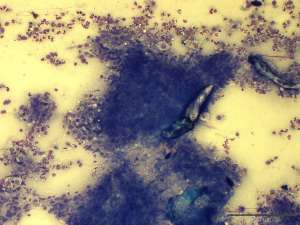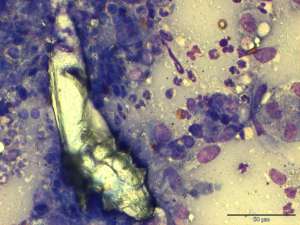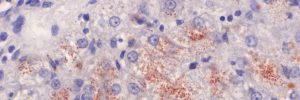Demodex mites in a dog
A 1-year-old dog presented with a swelling/mass on its foot. The referring veterinarian aspirated the mass and submitted it for cytologic examination.


Final Diagnosis
Pyogranulomatous inflammation with intralesional Demodex mites
Discussion
Demodicosis is a non-contagious parasitic disorder most commonly caused (in dogs) by Demodex canis. Low numbers of these mites can be found normally, especially in the skin over the muzzle; however when these mites proliferate and overpopulate the hair follicles they can induce inflammatory disease. This can present as a juvenile form (which is more common) and an adult onset form; both forms can be further divided into localised or generalised presentations. Localised lesions are often self-limiting, while generalised disease is much more serious. Generalised disease is suspected to be related to an inherited condition resulting in immune dysfunction. While an autosomal recessive pattern of inheritance has been shown, the exact means of dysfunction has not been determined. The development of adult onset demodicosis following the use of immunosuppressive drugs supports the assumption of underlying immunosuppression leading to disease.

